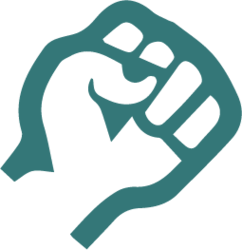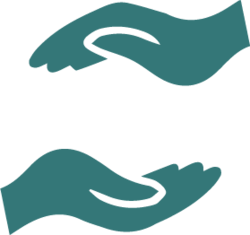The tarpan
Tarpan, wild horses descended from the primitive European horse that populated some parts of Eastern Europe until the 19th century. After their disappearance in the wild, their descendants were found among small horses used by local farmers. It was a Polish scientist, Professor Vetulani who undertook to save the species. Today, they live wild in several countries where they are recognized for their major role in the maintenance of grasslands. In the Netherlands in particular, they are found in herds of dozens or even hundreds living on reserves where they are able to find their original way of life. In France, first imported into Lorraine, they are present in a few small reserves, mainly located in the central-east of the country. (Source: Arthen)
The place of herbivores
No offense to hunters, but the merits of the presence of a species is not limited to a label “fair game" and the primary role of large wild herbivores is not to finish on a plate. Because, know it or not, herbivores are managers of the landscapes which, by their grazing, maintain the open areas like the meadows. Certainly, their populations must be regulated; but as Nature knows best, hers plans don’t include Sunday hunters, but instead natural predators such as wolves, bears and lynx. They don’t just kill the most beautiful specimens so they can hang their heads as trophies on their living room walls. They kill the sick or fragile thus participating in the health of an ecosystem in its entirety. To take full measure of this phenomenon, there is nothing else like the famous video from Yellowstone, illustrating the renewal of an entire environment following the return of wolves...
The usefulness of tarpan
The establishment of the tarpan populations in France has undeniable advantages. In contrast to sheep farming, they do not need sanitary treatments, which, when released back into the wild via excrement are the source of dramatic chemical pollution of the micro fauna. They are also naturally resistant and do not need shelter or food supplements. They are wild animals therefore autonomous, independent of humans and with a high added value for the environment. In other words, they are natural managers of ecosystems; the only ones to be able to maintain or participate in the return of a sustainable balance, beneficial to biodiversity.
To act
One Voice supports the return of large herbivores such as the tarpan in France. It represents a major challenge to our society which only sees a species directly useful to humans if they are beneficial. Unlike extensive farming or pastoralism, which are not as ecologically friendly as we would like to believe (in addition to medical treatments, herds are also destroying vulnerable areas by trampling over them); only naturally regulated wild species are truly respectful of nature.
The Arthen association is raising funds today to build a new park in Bugey to accommodate a new group of tarpan. This natural area is “dry grassland" in the process of becoming brush wood because the land was formerly grazed and has now been abandoned for several decades. Tarpan can contribute to maintaining the ecological interest of this environment, which contains a particular flora and fauna: orchids, butterflies and shrike, etc.
Firstly the area must be fenced off and some adjustments made such as water points and a round up area. One Voice supports this project and hopes that many of you will mobilize to make it possible. To learn more and make a donation, go to Ulule.
Photo credit: © Arthen.















Comments 11
Bastet | Monday 30 April 2018
Ewa Perczak | Monday 30 April 2018
Namaste | Friday 12 February 2016